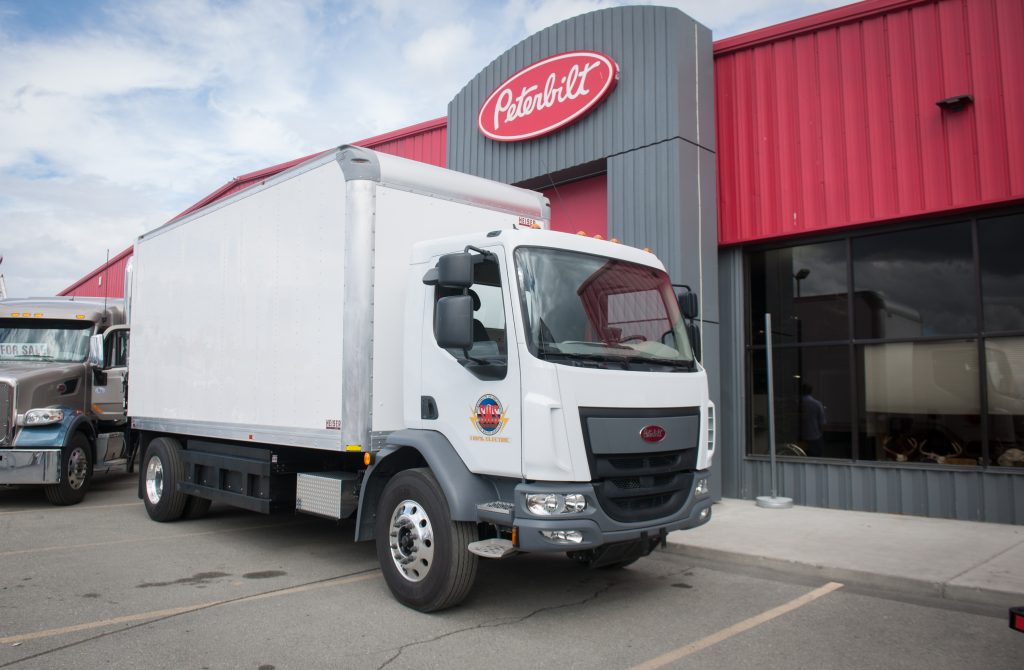
Peterbilt Motors Company is pleased to announce the delivery of the first production Model 220EV to the Municipality of Anchorage Department of Solid Waste Services (SWS) in Anchorage, Alaska during a celebration at Peterbilt of Alaska’s Anchorage facility.
As part of a groundbreaking order that included a Model 220EV and Model 520EV, the City of Anchorage and SWS are at the forefront of technology and sustainably and is looking to show the benefits of battery electric commercial vehicles to the rest of the state and the circumpolar north.
“I’m proud that SWS will be putting the first production Peterbilt Model 220EV to work. This is a big moment for an American manufacturer and for my department. EVs are the future – they are cost effective, better for our drivers and our neighborhoods. We look forward to working with Peterbilt to share the benefits of EVs and continue to expand our electric fleet,” said Mark Spafford, General Manager Department of Solid Waste Services Municipality of Anchorage.
The Model 220EV is Peterbilt’s first electric configuration for medium duty applications and provides customers a zero emission Class 6 or 7 vehicle for clean, efficient operation and lower overall maintenance. With a range of up to 200 miles on a full charge, the Model 220EV is powered by an electric motor and features two battery packs and an on-board charger. When using the vehicle’s DC fast-charging system, the state-of-the-art, high-energy density battery packs can recharge in 1-2 hours, making the Model 220EV ideal for local pickup and delivery, as well as short regional haul operations.
“Peterbilt is leading the charge when it comes to commercial vehicle electrification and the delivery of the first production Model 220EV to the City of Anchorage and SWS is a milestone moment for Peterbilt’s battery electric vehicle roll out,” said Jason Skoog Peterbilt general manager and PACCAR vice president.
The purchase of the Model 520EV and 220EV were made possible through a grant from the U.S. Department of Energy. SWS also contributed towards the purchase of the trucks while the Alaska Energy Authority provided funds for the charger.


